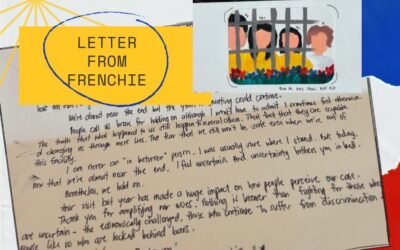In the course of four days last week, we saw an alarming glimpse of how little regard those supposedly sworn to uphold the rule of law and to safeguard our rights and freedoms actually hold these in little regard, even contempt.
On January 21, Glenn Jester HItgano, reporter of the Radio ni Juan Network’s station in Tagum City, Davao del Norte, was arrested and detained by police in Carmen town who claimed the reporter “insulted” them by interviewing striking banana workers holding their protest near the law enforcers’ station.
The officers not only attempted to handcuff Hitgano, they also tried to erase the recording of his interview with the workers and only released him after he promised not to air his report on the workers’ protest.
On January 25, Davao City police, on orders of their chief Col. Kirby John Kraft, barred media from entering the UCCP-Haran compound to cover a press conference called by church and tribal leaders to denounce an attempt to evict scores of lumad evacuees by bolo-wielding militiamen 10 days after the Davao Regional Peace and Order Council called for the closure of what for years has served as a sanctuary for tribespeople fleeing attacks and harassment by the military and armed militias.
These two incidents came on the heels of the harassment and assault over two days of Edito L. Mapayo of Click FM 99.3 MHz in Claver, Surigao del Norte by a couple who had warned him not to discuss complaints against their alleged failure to deliver rice assistance to senior citizens not covered by social security.
All these incidents underscore the extent to which respect for freedom of the press and of expression have severely eroded under an administration that has proven to possess little patience for criticism and dissent and displayed open hostility to independent media.
After all, if the president can curse journalists and media outfits and actively work to silence them, if ranking state security officials and sundry government factotums can openly accuse journalists and media outfits of being enemies of the state without feeling obligated to prove their claims, should it be a surprise when policemen begin to believe they can treat anyone, journalists included, any way they want?
These incidents, which all happened in Mindanao, are reminiscent of earlier abusive behavior by police officers: the illegal seizure by personnel of the National Capital Regional Office of the press freedom mural of the National Union of Journalists of the Philippines and Concerned Artists of the Philippines during the promulgation of judgment in the Ampatuan massacre trial in December last year and the snatching of the cellular phone of reporter Jun Veneracion by Southern Police District chief Brigadier General Nolasco Bathan.
As history has taught us, there can be only one response to such abuse: resistance.
Let us not accept such behavior and call out those who engage in it every time. Just as important, let us not allow their behavior to dictate how we carry out our work. Let us continue to serve the people’s right to know through independent, committed, and ethical journalism.
National Directorate
+639175155991
STATEMENT | NUJP to Palace: Expand Access Instead of Replacing Reporters
While acknowledging that formal requests are preferable to demands and outright bans, the National Union of Journalists of the Philippines backs the Malacañang Press Corps on the Presidential Communications Office's bid to replace reporters it has cited for breaking...


